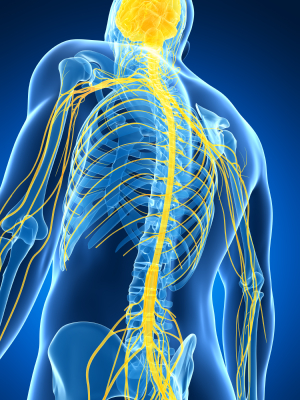Examples of Brain & Spinal Cord Injuries
 Brain and spinal cord injuries may be temporary or permanent. In 2010, the U.S. Centers for Disease Control and Prevention (CDC) estimated that roughly 200,000 Americans were living with spinal cord injuries. The spinal column is made up of 31 bones which protect the spinal cord. Damage to any of these bones may cause neurologic impairments. Furthermore, various forms of head trauma may cause brain injuries.
Brain and spinal cord injuries may be temporary or permanent. In 2010, the U.S. Centers for Disease Control and Prevention (CDC) estimated that roughly 200,000 Americans were living with spinal cord injuries. The spinal column is made up of 31 bones which protect the spinal cord. Damage to any of these bones may cause neurologic impairments. Furthermore, various forms of head trauma may cause brain injuries.
Types of Spinal Cord Injuries
Types of spinal cord injuries include, but are not limited to the following:
- Spinal Contusions, which typically results in temporary bruising, bleeding, or inflammation near the spinal cord
- Anterior Cord Syndrome, or damage that occurs on the front of the spinal cord resulting in impaired touch, temperature, and pain sensations within the body below the point of injury
- Central Cord Syndrome, or damage that occurs at the center of the spinal cord resulting in loss of arm function
- Posterior Cord Syndrome, or damage that occurs on the back of the spinal cord resulting in poor coordination
- Brown Sequard Syndrome, or damage that occurs on one side of the spinal cord resulting in loss of movement in one side of the body and loss of sensation in the other side of the body
- Cauda Equina Lesion, or damage that occurs between the first lumbar region and the second lumbar region resulting in partial to complete loss of sensation
- Complete Paraplegia, or permanent loss of nerve and motor function that results in the loss of feeling and movement in the bladder, bowel, sexual organs, and legs
- Complete Tetraplegia, or permanent loss of nerve and motor function that results in the loss of feeling and movement in the bladder, bowel, sexual organs, legs, arms, and hands
Types of Brain Injuries
Types of brain injuries include the following:
- Anoxic Brain Injury, or brain injuries resulting from total lack of oxygen
- Cerebral Hypoxia and Hypoxic-Anoxic Injury, or brain injuries resulting from partial to total lack of oxygen
- Diffuse Axonal Injury, or brain injuries that occur over a large area of the brain
- Focal Brain Injury, or brain injuries that occur in a specific area of the brain
- Cerebral Palsy, which is a neurological condition impairing balance or movement that can affect the patient’s entire body
- Erb’s Palsy, Brachial Palsy, Klumpke Paralysis, or Erb Duchenned Paralysis, which is an injury to the nerves surrounding the patient’s shoulder resulting in arm weakness or paralysis
- Closed Head Injury, or brain injuries that occur as a result of a sudden and aggressive movement that causes the brain to hit the skull
- Second Impact Syndrome, or brain injuries that occur when a second concussion happens before the first concussion can fully heal
- Subdural Hematoma, or brain injuries that occur when certain blood vessels rupture within the brain and leak blood into the surrounding brain tissue resulting in compression
- Other Traumatic Brain Injuries or Acquired Brain Injuries
What Can Experienced Orlando Brain Injury Lawyers Do for You?
A brain and spinal cord injury may be filed as one of two types of lawsuits, including personal injury or wrongful death. Due to their medical nature, brain and spinal cord injury lawsuits are complicated. The lawyer must have experience in medical cases to possess both legal and medical knowledge, which is necessary for winning the lawsuit. Fill out our short form to get a free initial consultation for brain and spinal cord injury claims. Let an experienced Orlando Brain Injury Lawyer fight for the compensation you deserve.
What Damages Receive Financial Compensation for Brain & Spinal Cord Injuries?
A plaintiff in a brain and spinal cord injury lawsuit may receive financial compensation for the following:
- Rehabilitation
- Counseling or other psychiatric care
- Hospitalization
- Additional medical care that will be necessary throughout the patient’s life
- Caregivers in the home
- Travel expenses involved with additional medical care
- Medical expenses that may not be covered by the patient’s health insurance
- Lost wages
- Loss of earning capacity
- Pain and suffering
- Loss of consortium
- Loss of companionship
- Loss of parental support
- Loss of life’s enjoyment
- Expenses for support services for the patient’s family
- Funeral expenses
